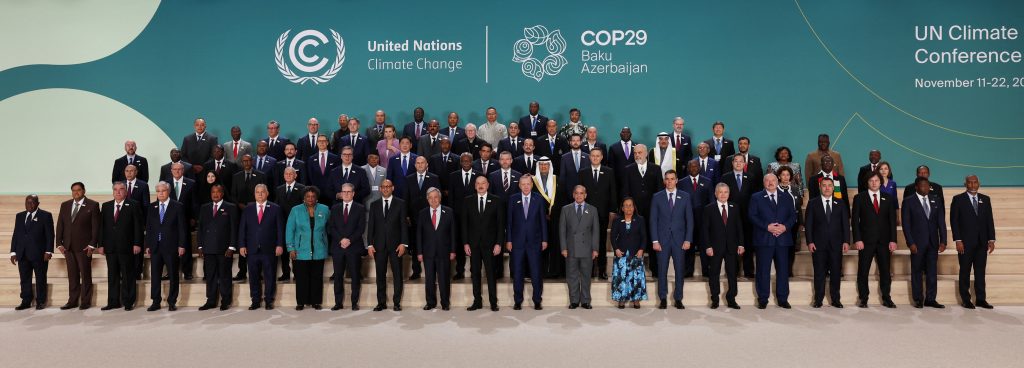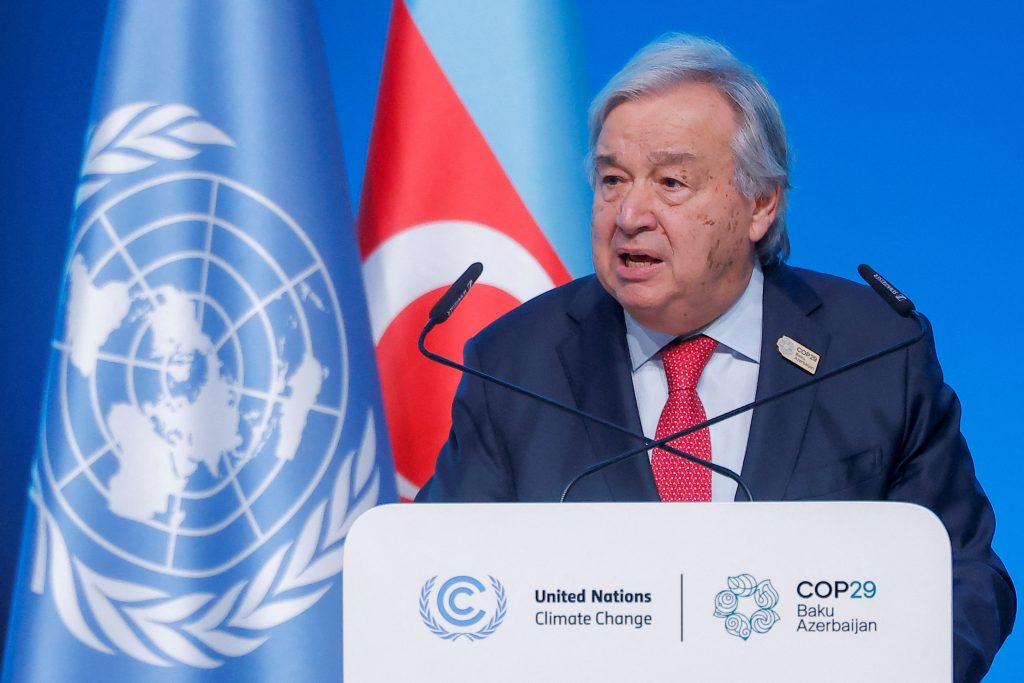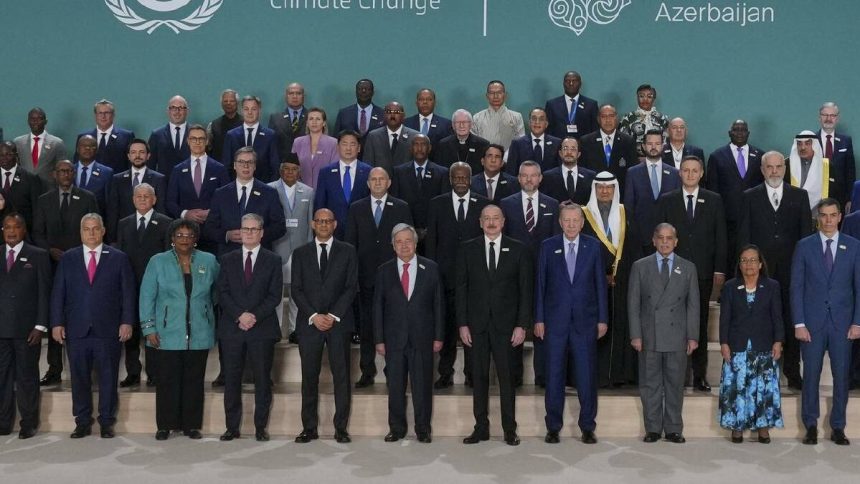World Leaders Urged to “Pay Up” at COP29 to Avoid Climate Disaster as Key Players Miss the Summit
At the COP29 summit in Baku, United Nations Secretary-General António Guterres delivered a powerful call to action, urging world leaders to intensify their efforts to avert climate-driven humanitarian crises by securing critical financial commitments.
“On climate finance, the world must pay up, or humanity will pay the price,” he declared, underscoring the urgent need for climate action with the ominous warning, “The sound you hear is the ticking clock. We are in the final countdown to limit global temperature rise to 1.5 degrees Celsius, and time is not on our side.”
The COP29 summit, which has gathered nearly 200 nations, focuses on mobilizing hundreds of billions of dollars to fund a transition to clean energy.
However, Guterres’ message may have lost some momentum as several prominent world leaders were notably absent. U.S. President Joe Biden, grappling with the repercussions of former President Donald Trump’s re-election—a known climate change skeptic—opted not to attend.

Chinese President Xi Jinping also skipped the event, sending a deputy in his place, while European Commission President Ursula von der Leyen was similarly absent due to urgent political matters in Brussels. The absence of these key players from the high-stakes climate summit reveals the geopolitical challenges in rallying global support for a comprehensive climate strategy.
READ ALSO: North Korea and Russia Solidify Mutual Defense Pact Amid Rising Military Cooperation
As the summit unfolds, time remains an inescapable factor. Global temperatures are rising faster than anticipated, with 2024 set to be the hottest year on record.
Scientists warn that the world may have already reached the critical threshold of 1.5 degrees Celsius above pre-industrial temperatures. Crossing this boundary would risk triggering irreversible and extreme climate consequences, including devastating natural disasters.
The urgency of the climate crisis was painfully evident as COP29 began, with unusual wildfires raging along the eastern U.S. coast, prompting air quality warnings for New York residents. In Spain, communities were left reeling from unprecedented floods, marking the worst natural disaster in the country’s recent history.
In response, the Spanish government announced a significant multi-billion-euro reconstruction effort. These events serve as grim reminders of the human and economic costs of climate inaction, highlighting the urgent need for global cooperation and decisive policy measures.
The summit’s opening day was marked by a tense procedural dispute over agenda priorities, underscoring the divergent views on climate action. Small island nations and European countries pushed to prioritize fossil fuel reduction on the agenda, while oil-rich Arab states advocated for a different focus.
The impasse delayed the summit’s opening proceedings by more than five hours and was only resolved through a compromise, reluctantly accepted by the EU and other aligned nations. This rift highlights the complexities of addressing climate change on a global scale, where countries’ varying economic dependencies on fossil fuels often clash with broader climate objectives.
Despite these challenges, COP29 achieved a milestone technical agreement critical to establishing a global carbon market. This UN-backed initiative aims to channel billions of dollars into projects that reduce greenhouse gas emissions, a promising step toward sustainable development.

Yet, as COP29 officials stressed at a press conference, the summit’s primary mission remains securing up to $1 trillion in annual climate finance for developing countries.
Simon Stiell, the executive secretary of the United Nations Framework Convention on Climate Change (UNFCCC), addressed this ambitious goal, emphasizing that robust climate action from every nation is essential for a stable global economy.
READ ALSO: Oil Prices Dip Amid Concerns Over China’s Stimulus Impact and Growing Oversupply Risks
“Enabling every country to take strong climate action is 100% in all countries’ interests, even the largest and wealthiest,” he explained. “The climate crisis is fast becoming an economy killer. Unless all countries can slash emissions deeply, every country and every household will be hammered even harder than they currently are. We’ll be living in a permanent inflationary nightmare.”
As the COP29 summit progresses, the stakes are high. The summit’s ambitious goals, including climate finance commitments and the global carbon market, offer a pathway to resilience against climate impacts. Yet, achieving these objectives requires unprecedented cooperation and dedication, particularly from nations whose participation is crucial for global impact.
Guterres’ message was clear: to avoid the devastating consequences of climate inaction, nations must “pay up.” The ticking clock on climate change demands not only urgency but unity. With a complex web of geopolitical interests, the path forward is daunting. However, as the climate crisis continues to intensify, COP29 may be humanity’s best opportunity to secure a sustainable future.

